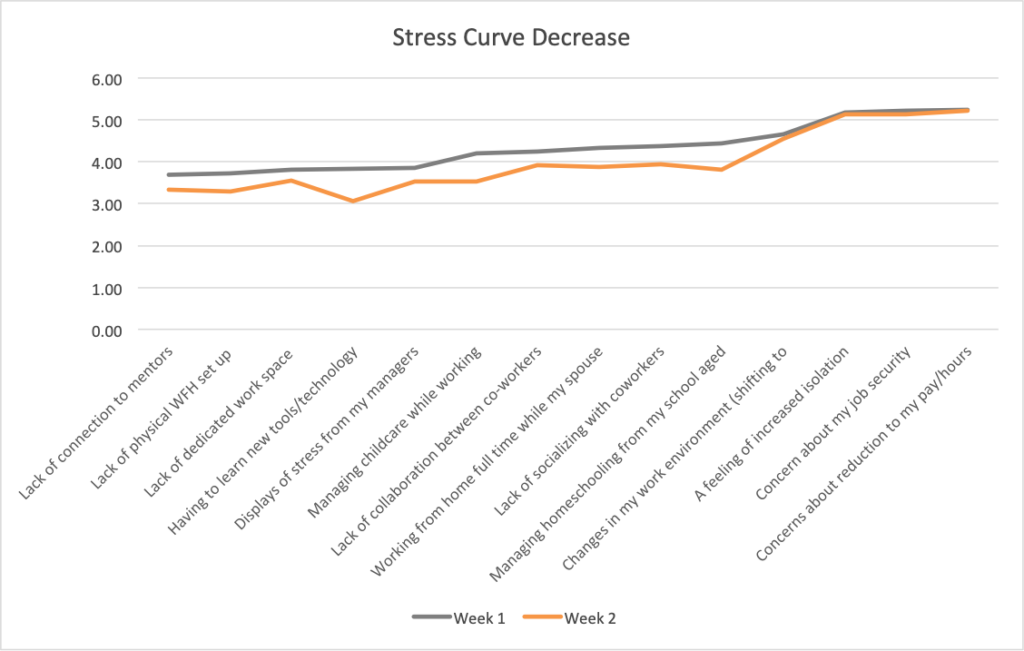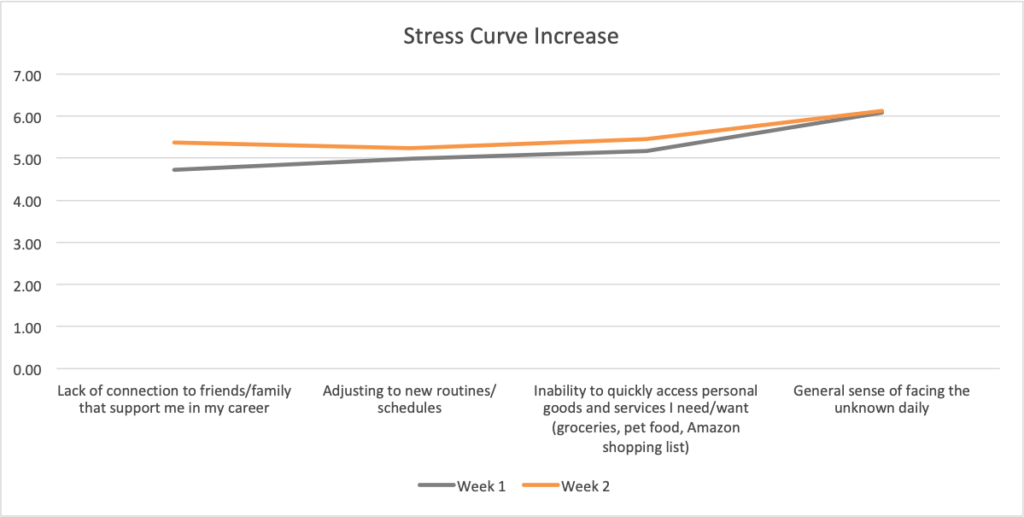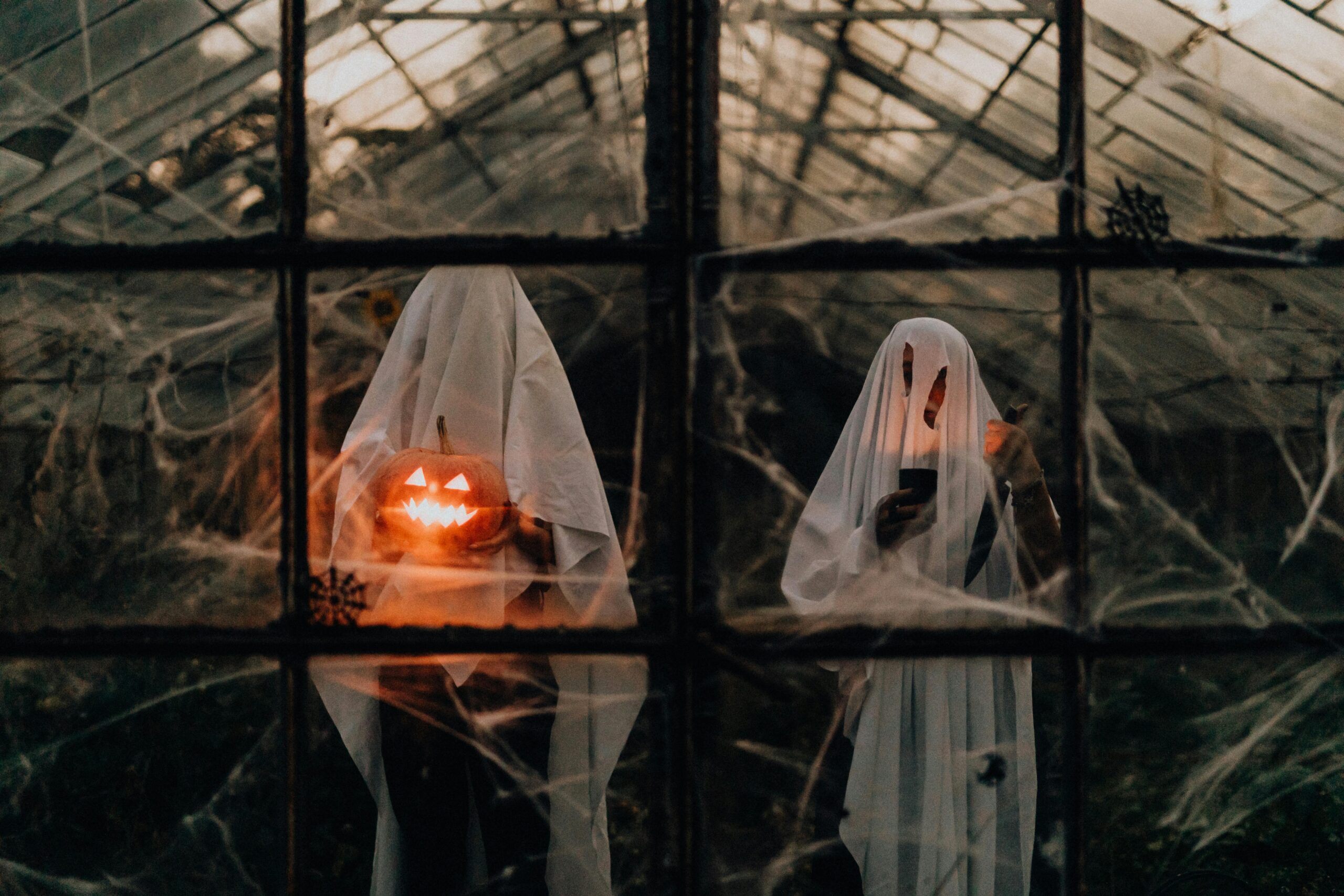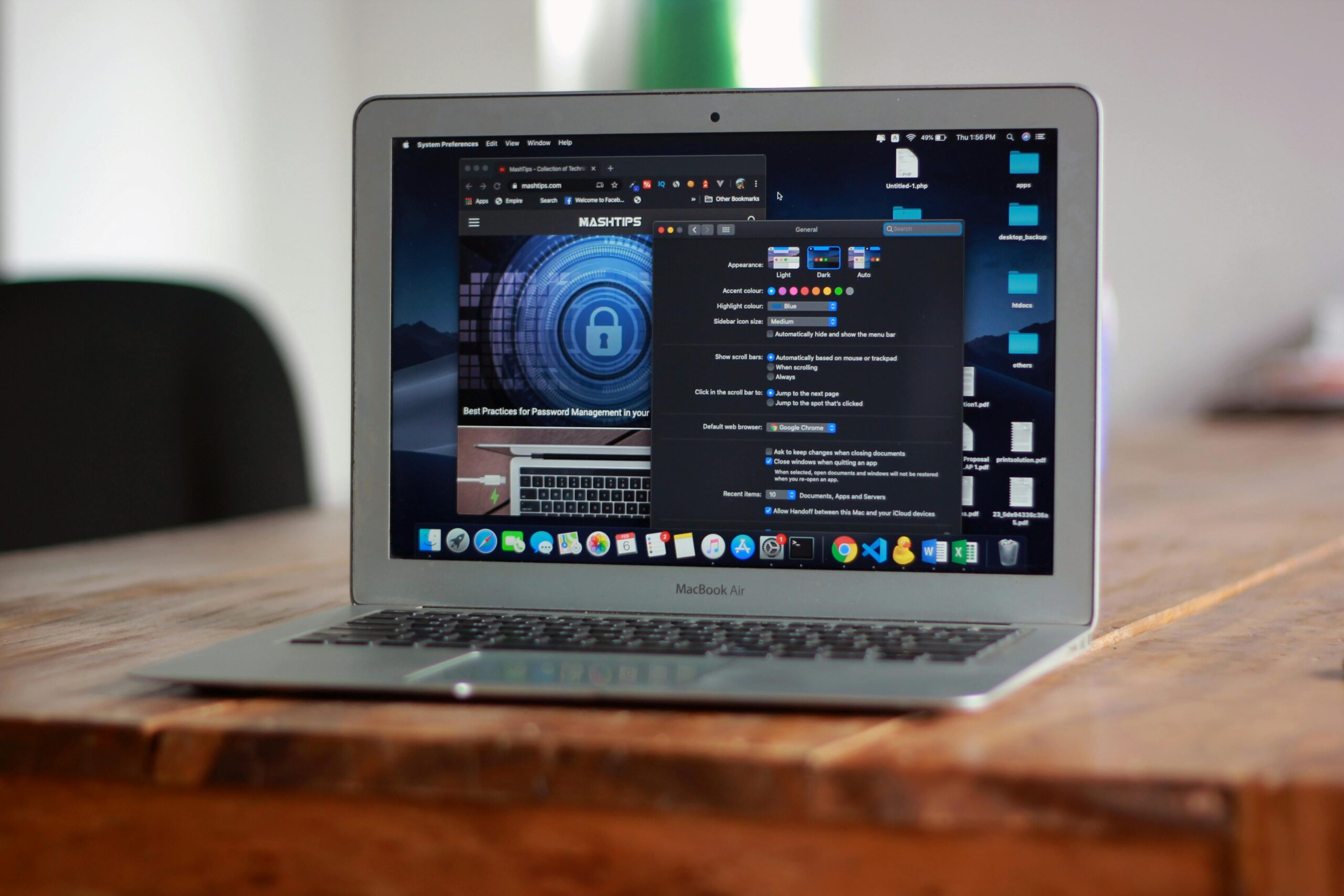
by Molly George
We’ve made it through another week of lockdown. How are you feeling?
If maybe just a tad bit better than last week, then you’re in line with the national sentiment, which reported an average 5% decline in stress levels.
In the second week of our COVID-19 stress study, we spoke to 685 people across the country who were employed full-time as of March 1, 2020. This week, 12% (!!) of people reported having already lost their job due to the COVID-19 outbreak. And an unprecedented 96%, reported at least some level of stress surrounding personal job security.
But despite these realities, the American workforce is settling into the COVID lockdown — and feeling just a tiny bit less overwhelmed this week than last week. Let’s dive into the specifics.
Most of us are still pretty stressed out.
3 out of 4 workers say they are still generally more stressed out now than they were before the start of the COVID crisis. Not sure who the other 25% are, but please show us your ways!
But most people say, it’s getting better.
80% are either less stressed this week than last or the same (50/50 split). Only 20% report an increase in their stress levels. The big contributor to lower stress levels is that people are getting the hang of and managing WFH.
The biggest drops in stress levels came from:
- A 20% drop in stress levels reported from needing to learn new technologies to WFH.
- A 16% drop in managing childcare while working
- A 14% drop in managing homeschooling
- A 12% drop in having the right WFH set up
- An 11% drop in managing working from home full time while a spouse also works from home
All these declines contributed to an overall 5% dip in stress levels week-over-week.

Economic optimism is rising.
Faith that an economic recovery is coming may also be contributing to lower stress. 74% of respondents said they are “somewhat” (60%) or very (14%) optimistic about an economic recovery, with 19% saying they are more optimistic about the economy this week than they were last week. And the vast majority believe we will see that recovery happen in 2020 with 79% agreeing the economy will recover this year. More than 1/3 (37%) of those respondents believe recovery is right around the corner, projecting recovery will start in June or July and a full 50% believing it will start by the end of Q3 (by September, 2020).
Lockdown is wearing on us all.
While overall stress levels are down and economic optimism is up, isolation is starting to wear on people. The biggest rise in the stress curve came from the “lack of connection to friends and family” which jumped up 14%. And the overall biggest driver of stress continued to be “facing the unknown daily,” driving home the fact that we collectively still don’t know exactly what’s coming next.

If you’re like us and nerding out over data somehow makes you feel better, and you’d like to see any specific questions added to our study, let us know at hello@meetkickstand.com
This study was completed at a 95% confidence level with a margin of error of +/-4% among American’s who were employed full time as of March 1, 2020.



